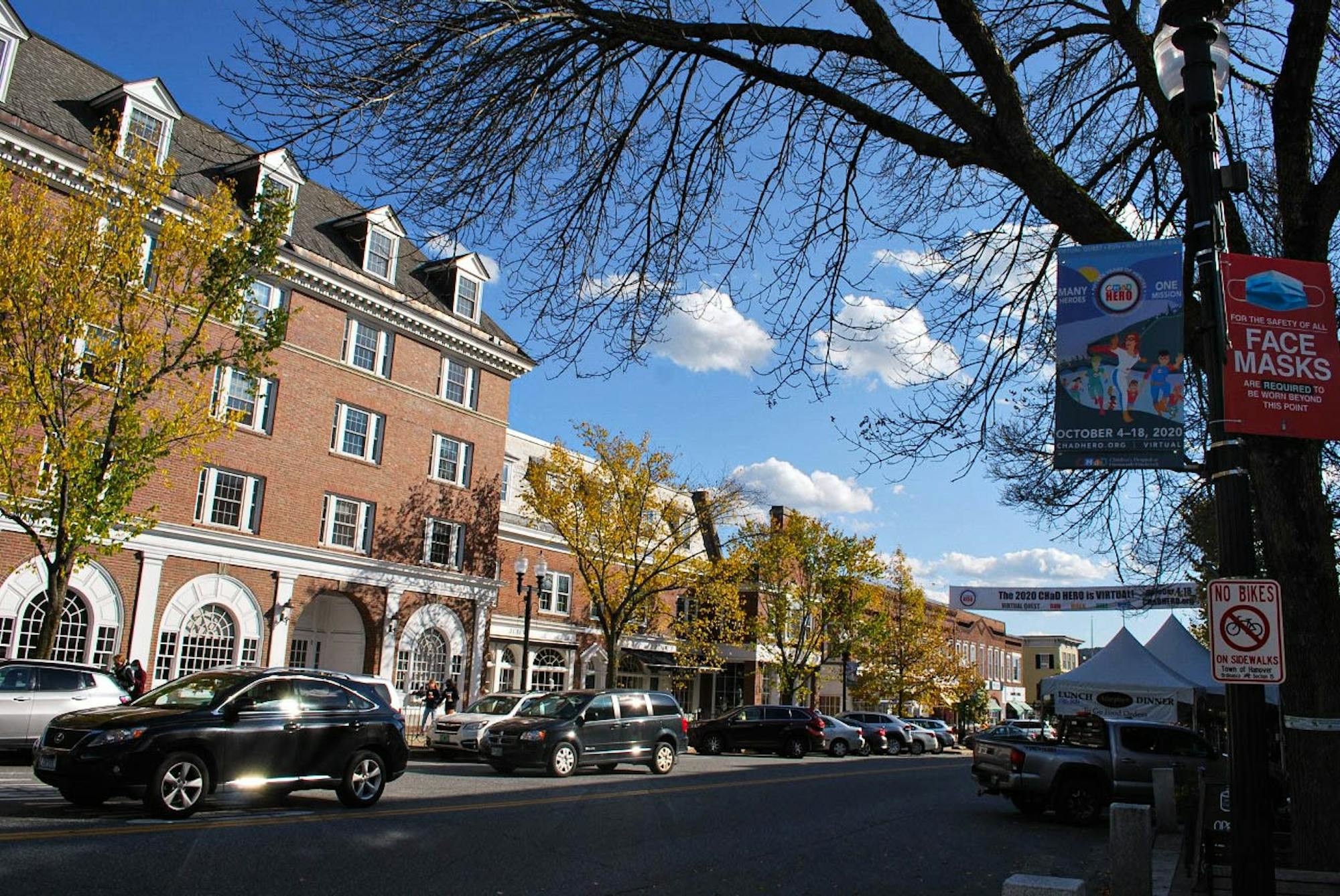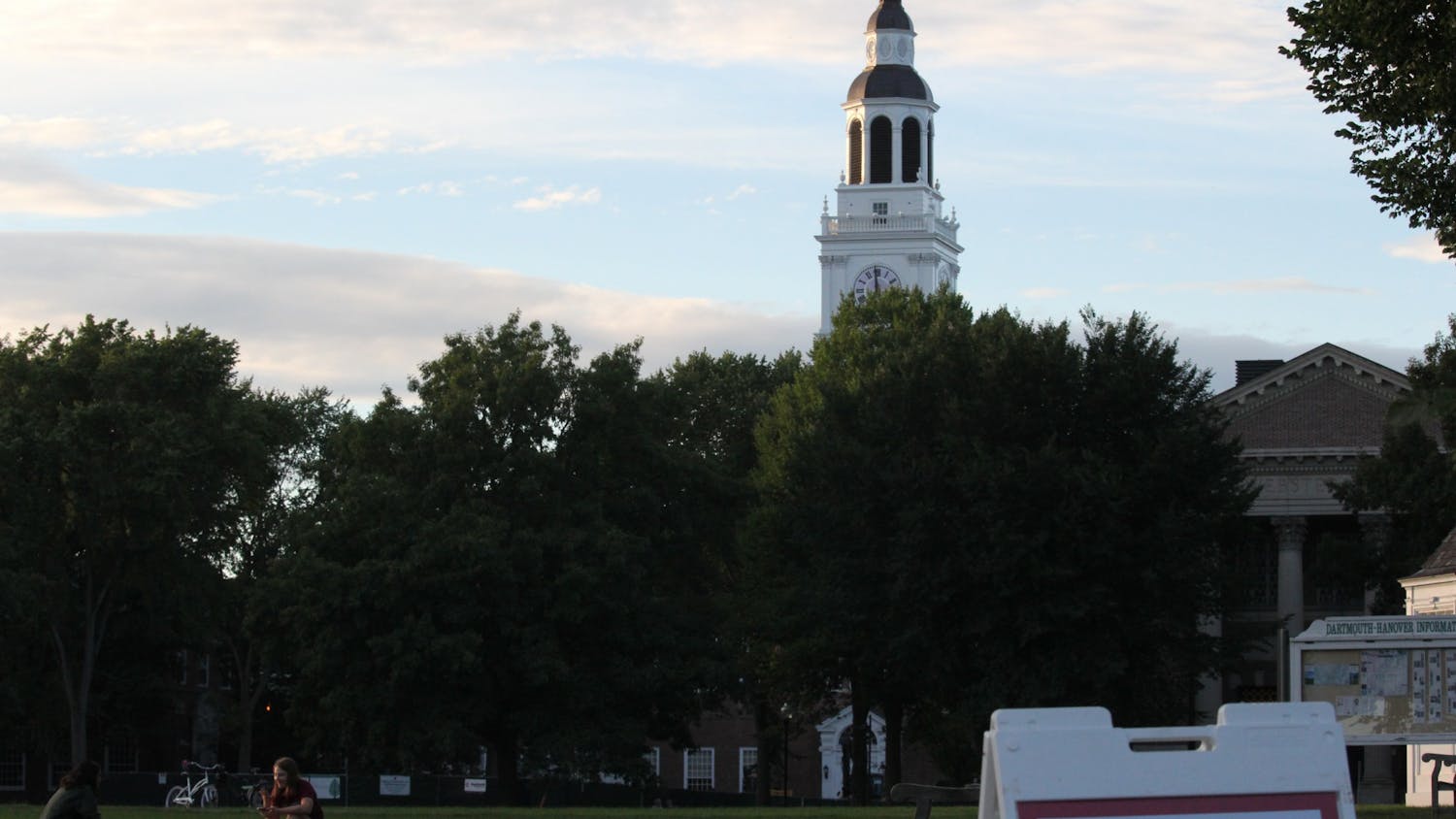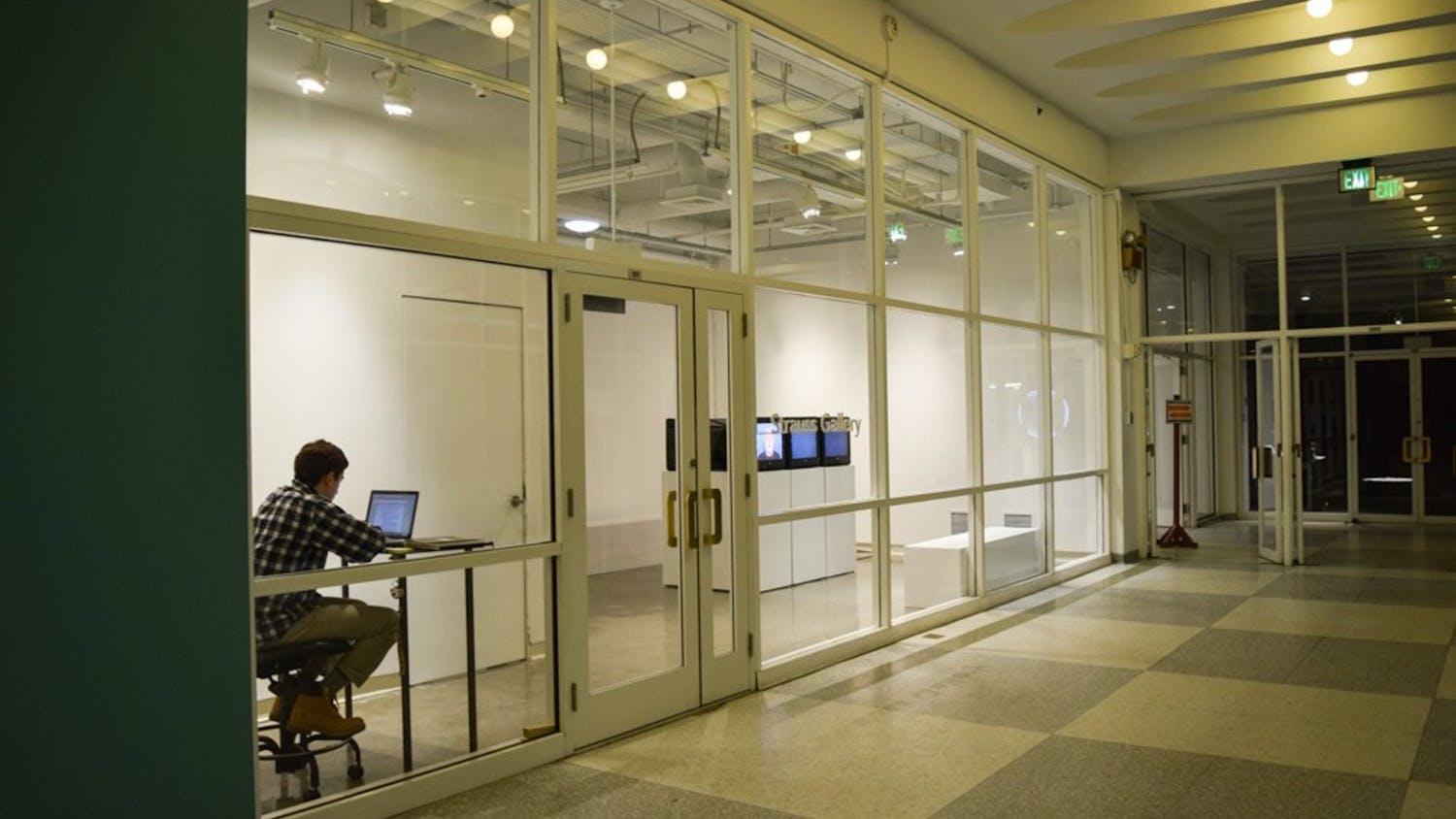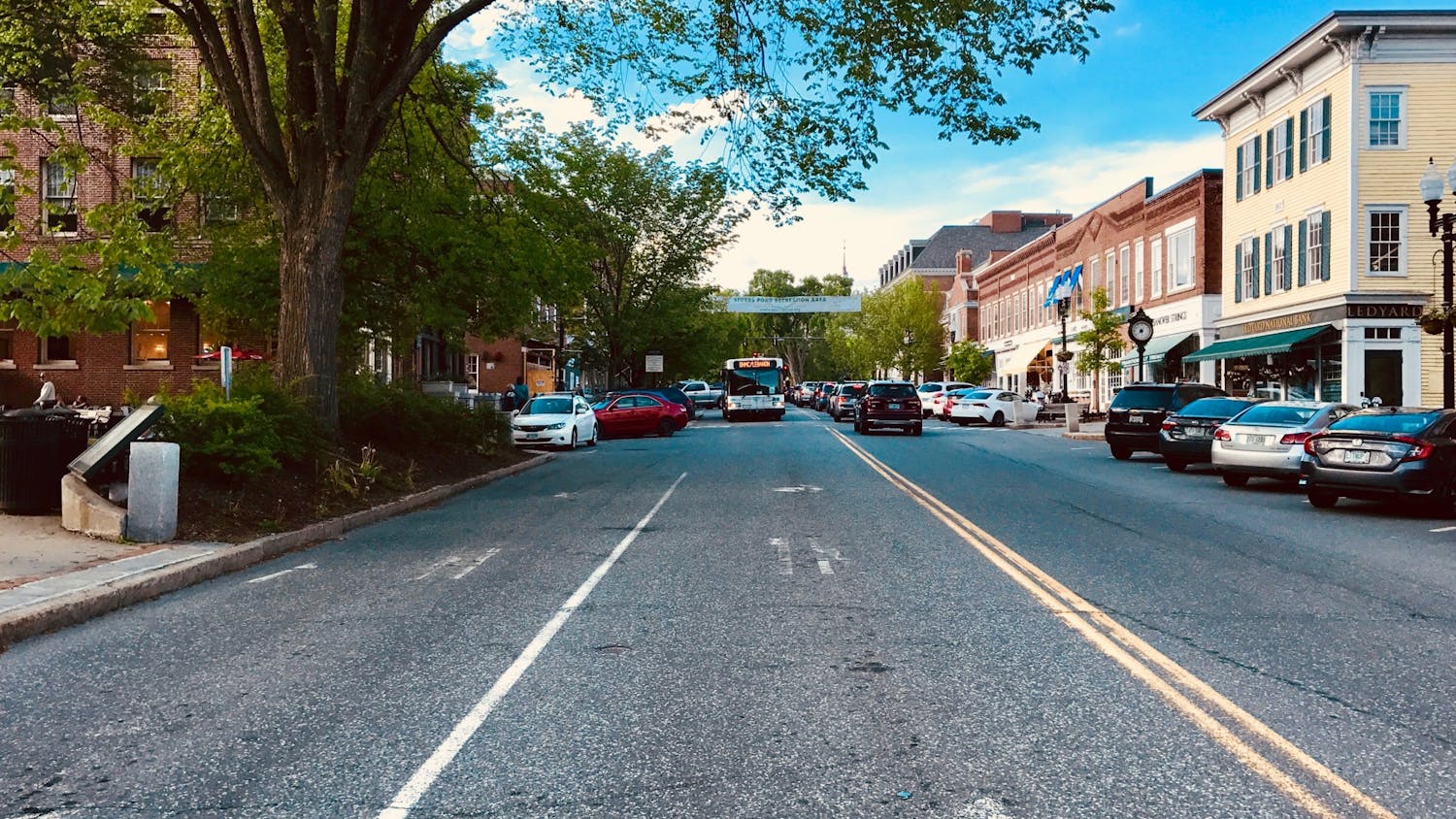In the seven months since the pandemic began, Hanover businesses have struggled to adapt to COVID-19 restrictions and decreased patronage. Now, local restaurants must prepare for a new challenge: the New Hampshire winter.
In an effort to reduce the spread of the virus while allowing restaurants to reopen, the town of Hanover provided parking spots to several businesses as space for outdoor seating. As the temperature drops, however, Hanover will require businesses to clear the provided spaces by Oct. 31, though that deadline could be moved earlier or later based on weather conditions, according to town manager Julia Griffin.
New Hampshire Gov. Chris Sununu announced in late August that restaurants in the state can seat patrons indoors at full capacity with added distancing and public health precautions in place. Griffin noted, however, that some restaurants may choose not to offer full indoor seating in order to be especially cautious.
Griffin said that the town has worked closely with local restaurants to determine ways to increase patronage during the winter months despite the infeasibility of outdoor seating. Ideas include creating new drive-thru locations for multiple businesses and bringing back metered-parking pick-up spaces that the town discontinued when outdoor dining expanded.
“We’re exploring a handful of possible locations and scenarios that would work for the winter months, just to help make takeout food as accessible as possible for diners that do not feel safe eating indoors in restaurants,” Griffin said.
Murphy’s on the Green owner Nigel Leeming noted that, in accordance with Sununu’s announcement, the restaurant has reopened indoor seating at full capacity. Other restaurants, including Lou’s, have chosen to keep occupancy reduced.
Lou’s owner and CEO Jarett Berke Tu’17 stated that his restaurant will have to “figure out ways [it] can survive” as the seasons change. Lou’s had previously implemented delivery and takeout options, along with “family-style meals,” to help business.
Pine is currently offering some socially distant seating indoors and has also expanded outdoor seating, planning for the colder months by providing heaters and blankets for customers, according to Hanover Inn general manager Brian Hunt. He noted that the official closure of Pine’s patio seating will be weather-dependent.
In a move that Boloco owner John Pepper ’91 Tu’97 deemed either “laz[y] or strategic,” outdoor seating on the Boloco patio will remain an option for patrons through the winter. He added that the restaurant is presently considering adding heaters.
Hanover restaurants have already faced a smaller number of customers since Dartmouth invited only half of its student body back to campus this fall. While some restaurants have navigated the pandemic, others have struggled and announced closures.
The Hanover locations of Skinny Pancake and Salt Hill Pub, as well as Morano Gelato, closed their doors in recent months. In an Oct. 4 Facebook post, Market Table owner Nicky Barraclough announced that the restaurant’s last day of business will be Oct. 25.
“We will always be grateful that we were able to reopen in June, and enjoy the summer months and abundance of amazing locally grown produce, albeit with fewer people in Hanover,” Barraclough wrote in the post. “However, with outside dining moving indoors as temperatures fall, we have reluctantly decided not to renew our lease.”
Barraclough declined to comment further on the restaurant’s closure.
According to Griffin, no additional businesses anticipate closing before more information about winter conditions and state or federal relief funding becomes available.
“To my knowledge, there is not anybody right now that is teetering on the edge of making a closure decision and hasn’t already pulled the plug,” Griffin said. However, she added, “to say it is a very dynamic and difficult-to-predict time in the economic forecast for a small New England town would be an understatement.”
Even for restaurants that have remained in business, recent months have not been without hardship.
Pepper said that he has seen profit margins shrink this fall despite hopes of boosting sales during the warmer months.
“Sales are down anywhere between 20 and 30% any day right now versus a year ago,” he said.
According to Berke, Lou’s has averaged between 20 and 30 delivery orders per day. The restaurant had not offered delivery before the pandemic and has kept the service in-house to reduce costs for the customer and keep money in the business.
After a severe drop in profits in the middle of March, Berke said that Lou’s fall earnings are down between 10 and 15%. At some points during the summer, outdoor business and warmer weather meant revenue at Lou’s was down only about 5%, he said.
As the operators of several businesses described, the town of Hanover has provided significant assistance to restaurants navigating COVID-19 restrictions and a period of economic downturn.
Pepper was thankful in particular for the opportunity to use town-provided parking areas for outdoor seating, noting the town was “very generous” and “quick” to provide the spaces.
Griffin pointed out that the situation for small businesses may get worse before it gets better. As COVID-19 cases rise in the Northeast, towns might be forced to reverse reopening provisions for restaurants and stores.
Berke underlined the difficulties of the pandemic for businesses and reminded residents of an opportunity to help keep local institutions afloat.
“It’s really important that you support local business because this is an extraordinarily difficult time,” he said.




